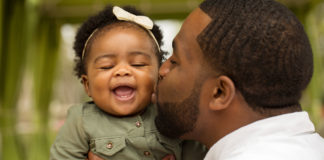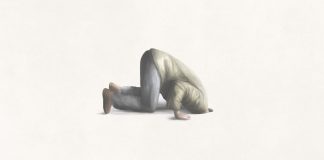The discovery of our century: t = t
"There is a time for everything, and a season for every activity under the heavens" (Ecclesiastes 3:1).
COVID-19 and our low-risk but endangered children
All COVID-19 statistics lead to the same conclusion: the young ones, our children, are at the lowest risk of getting ill or dying from the virus. That’s comforting. But the pandemic does pose a certain danger to them.
”Think of the children!” Are video games harming us?
As the world went into various lockdowns over the course of last year, people turned to a variety of entertainment forms to cope with...
The mothers of the mothers
In this heartfelt collection of interviews, six women from diverse backgrounds reflect on the joys, challenges, and lessons of motherhood and grandparenting. From raising children during communism in Romania to navigating single parenthood, depression, and cultural transitions, their stories offer wisdom, resilience, and deep love across generations. A moving portrait of motherhood’s enduring strength.
The dream that came true underwater
Our dreams must be stronger than the unfortunate circumstances in which we find ourselves.
Stuck in the waiting room
“Why are you still single?” Even though I have been asked this question countless times, I still never know how to answer it.
Gratitude your way into the New Year
There is no time like the end of the year that stirs our interest in self-improvement. Many of us are thinking of the new beginnings, lofty goals and big dreams we want to chase after, optimistic that the next year will be different to the last. Yet there is one thing we would do well to take in our stride before we enter...
Looking for a loving father
Fathers are an important part of their children’s lives. Good dads can provide stability, protection and love in a child’s life.
From hostages to fear tamers
“Am I still human if I’m afraid?” The question asked by a well-known fictional character can be the starting point for reflecting on how we learn to live with our fears.
#SELFCARE for Christians
The concept of self care—defined as the entirety of ways in which a person understands how to solve their emotional problems and manage their anxieties—has become a real movement in the past two years with an entire industry ready to make our lives easier and more comfortable. For Christians, however, this trend has proven to be quite problematic: making our lives easier is...
Overcoming trauma and the role of forgiveness in family life
Studies indicate that most people experience at least one traumatic event in their lifetime, whether physical or psychological.
The original meaning
Before I started looking for the meaning of life, I thought I had already found it. Or, that it had been given to me. In the world I came from, the road was clearly laid out. My life's major events were all mapped out, and precious little was negotiable.
12,000 people for one child
Until 2013, we only knew about the existence of Batman, the famous comic book hero, but almost a decade ago the whole world also got to know Batkid, a real boy from San Francisco, USA, whose story confirms the saying that “truth is stranger than fiction.”
At the crossroad of our thoughts
Our daily habits and actions constitute our state of mind. However, few people know that we hold great power over our own thoughts. Developing this power could pave the way for happiness.
Amid people and books
Meetings with people and books have shaped the space for a sometimes unequal, sometimes unsatisfactory growth between the human I am and the one I would like to be.


























